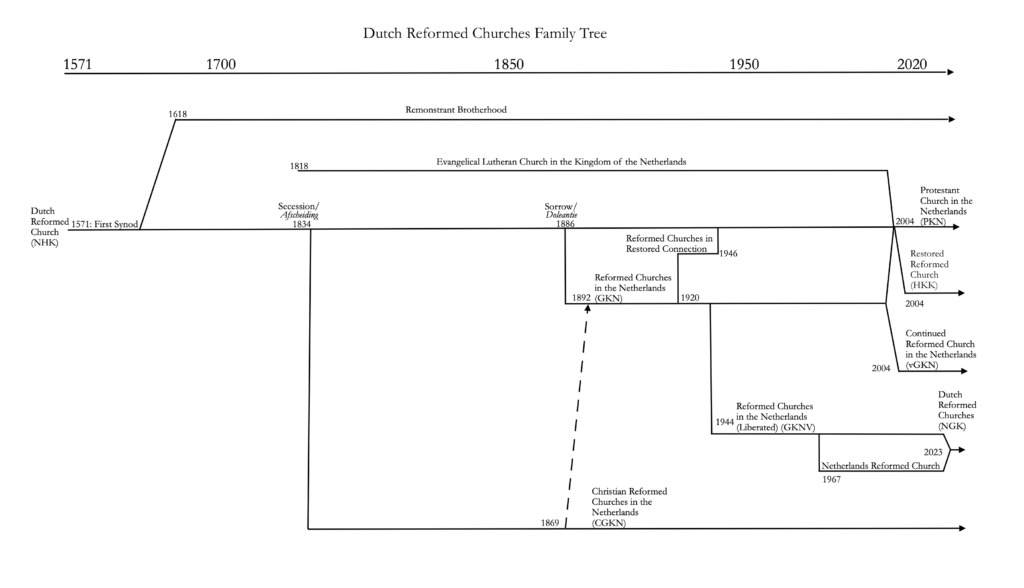World Reformed Fellowship Theological Consultation on Denominationalism in a Post-Christian Context
I serve on the Board of Directors for the World Reformed Fellowship and had the pleasure of organizing a recent theological consultation of North American Reformed church leaders to discuss Reformed denominations and denominationalism in our post-Christian context. The write up on the consultation can be found here, at the WRF site.
I am proud that we were able to get leaders from eight (!) different Reformed denominations in the same room and charitably and robustly engage one another. From the write up, “The goal of the consultation was not to rehash all of the same debates that have characterized Reformed churches, resulting in many different denominations, but to spark fresh ways to consider the topic and foster cooperation considering our current cultural moment. The goal was not to resolve our differences, but to speak to Christ’s call for oneness from our differing positions.” I think we did that successfully, and I am optimistic that this is the first of many steps encouraging greater Reformed, confessional cooperation across denominational lines.
Review, Control, and Synods: The Church’s Connection
The great Cappadocian church father Gregory of Nazianzus, who chaired the Council on Constantinople which settled the Nicene Creed, said “I saw the end of not even one synod as being useful”. Replace “synod” with “presbytery” and you get the idea. Herman Bavinck relays a proverb, “Every [church] council gives birth to [further] battles.” To riff on Ecclesiastes: Of meetings there is no end.
I was asked to speak on that exciting topic of “review and control” and Westminster Confession of Faith 31, “On Synods and Councils”. This risks significant boredom in our listener, or alternatively, perhaps the polity nerds are the ones already here. Yet the subject of review and control has great relevance to the ministry and mission of the church
“Review and control” is a phrase used in the EPC’s constitution and throughout American Presbyterianism, and means that higher church courts (presbyteries to sessions, general assemblies/synods to presbyteries) have the right and responsibility to review the actions of their subordinate courts and to correct them if necessary. This relationship has a confessional basis. WCF 31.2 states…
One More Time: Evangelicals and Presbyterians
In Ordained Servant, Darryl Hart has a review up of Reformed & Evangelical Across Four Centuries: The Presbyterian Story in America. I wrote about this book back in July, and both used and anticipated Hart’s assessments brought to bear in his review.
One of Hart’s criticisms is that the authors neglect the non-liberal, non-evangelical Presbyterian tradition, with the specific example of ignoring J. Gresham Machen but focusing on Harold Ockenga. I’m sympathetic to this criticism, and count myself as descending from the legacy of Machen. But I suspect that the confessionalist, non-evangelical wing of American Presbyterianism overestimates its importance. The OPC split from the PCUSA in 1936, but by the time the PCUSA merged with the UPCNA in 1958, the mainline denomination had 2.7 million members with the UPCNA having about 257,000. The OPC had about 10,000 in 1958; it’s 32,000 today. Hart cites two other denominations, the ARP and RPCNA, as lacking consideration. The RPCNA had a membership of 6,000 in 1958 and about 7,000 today. I can’t find the 20th century numbers for the ARP, but its current membership is about 22,000.
In other words, the non-liberal, non-evangelical denominations whose story that Hart wished was being acknowledged appear insignificant to the overall history of American Presbyterianism unless you happen to already belong to them…

